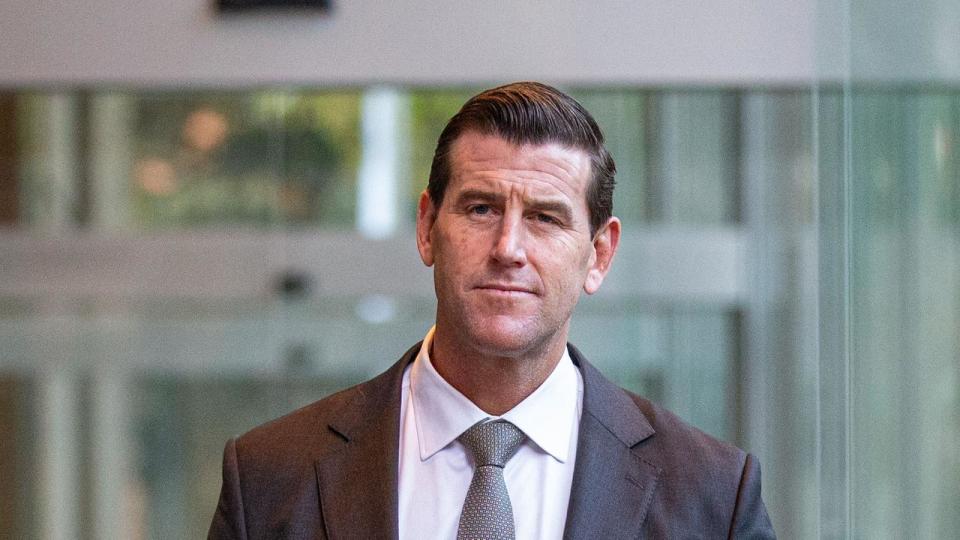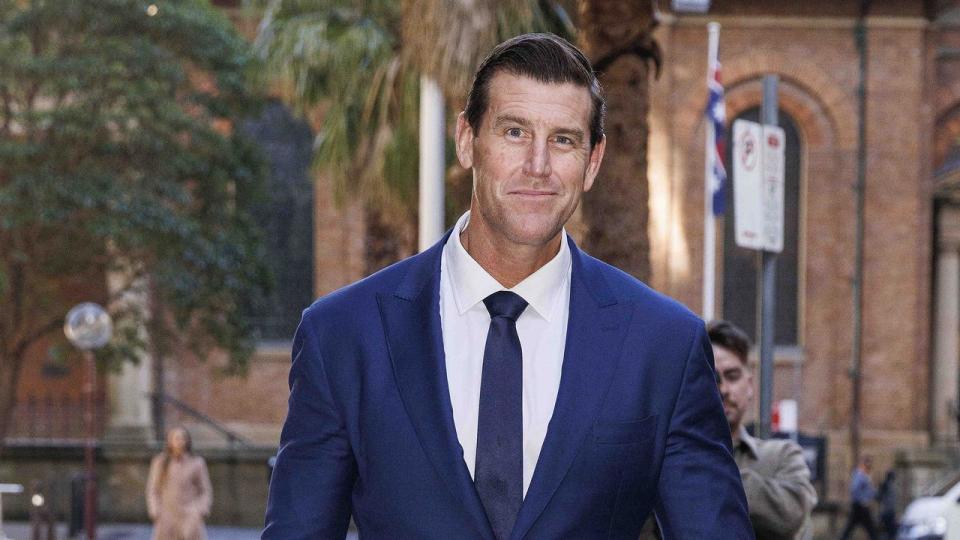BRS lawyers attack cliff-kick finding

Ben Roberts-Smith’s lawyer has attacked the evidence of a key witness who supported allegations he kicked a handcuffed Afghan civilian off a cliff, arguing a judge failed to take into account the time between the event and the soldier’s first complaint.
Mr Roberts-Smith is facing the Full Court of the Federal Court after he appealed against his damaging defamation suit loss to Nine Newspapers last year.
Justice Anthony Besanko last year dismissed the suit after Mr Roberts-Smith sued The Sydney Morning Herald, The Age and Canberra Times in 2018 over reporting of war crime allegations.
Mr Roberts-Smith is facing a two-week appeal hearing – before Justices Nye Perram, Anna Katzmann and Geoffrey Kennett – after Justice Besanko found that Mr Roberts-Smith, 45, was involved in the unlawful killings of four prisoners in Afghanistan.

The Victoria Cross recipient has always maintained his innocence and his lawyers have argued the findings were not supported by the evidence.
His barrister, prominent silk Bret Walker SC, has also argued that Justice Besanko failed to take into consideration the “Briginshaw principle”, which dictates that serious allegations should be treated cautiously.
In his judgment, Justice Besanko found that during a mission at Darwan in September 2012, Mr Roberts-Smith kicked a handcuffed shepherd, Ali Jan, off a cliff before he agreed that he should be shot.
Justice Besanko found that after Mr Jan was kicked off the cliff into a creekbed, Mr Roberts-Smith ordered that two other officers – named as Persons 11 and 4 – drag the injured man to a cornfield.
He found that Person 11 shot Mr Jan after conferring with Mr Roberts-Smith.

Mr Walker has questioned the judge’s findings, saying that Person 4 did not report the incident – which he labelled “startling” and “sensational” – until years later.
“The longer time between the alleged witnessing and the first report – whether informal or formal – the more reason there is to scrutinise carefully the whole of the evidence and to take a strict approach to questions of proof,” Mr Walker told the court on Wednesday.
He said that Person 4 did not speak to fellow officers about the allegation until late 2016.
“Which is of course a very considerable period after the events to stay quiet about something so serious,” Mr Walker said.
Mr Walker further argued that there was evidence the cliff-kicking allegation was not raised at a meeting of sergeants in early 2013 and at a meeting of corporals that same year.
Another officer, known as Person 100, attended both of those meetings; however, Justice Besanko rejected his evidence at trial.
“What matters is that P100 says there was no mention of war crimes … That evidence had to be dealt with, it can’t just be put to one side on a consideration that it is inconsistent with other evidence and therefore must be wrong,” Mr Walker said.
“The way in which His Honour did it is another instance of incomplete consideration of what has to occur if you are truly looking at all the evidence as a whole.”
In his judgment, Justice Besanko rejected the evidence of Person 100.
“It seemed to me that Person 100’s memory of the meetings was not particularly good, including as to what was said and who was present,” Justice Besanko said.

Findings in the case were made to the civil standard of the balance of probabilities, which is below the criminal standard of beyond a reasonable doubt.
Mr Walker also attacked the evidence of a key witness who said he saw Mr Roberts-Smith ordering the execution of a man at Chinartu in October, 2012.
Justice Besanko found that after another soldier, known as person 14, discovered a cache of weapons concealed in a mud wall, Mr Roberts-Smith – through an interpreter – ordered a member of the Afghan Partner Force, the Wakunish, to execute the man.
“The applicant was complicit in and responsible for murder,” Justice Besanko found.
However, Mr Roberts-Smith’s lawyers have disputed the finding and argued Justice Besanko fell into error.
Mr Walker on Thursday told the court that official records of the mission only make mention of one cache of weapons, which was discovered by engineers.
“The explanations … for why a cache would be discovered and not reported are in our submission non-existent,” Mr Walker told the court.
He argued it was “inexplicable” how a cache could be found but not reported.
“Those are the bare bones on which one then puts the flesh of the details, all of which should have led his honour to reject it as nowhere near as sufficiently cogent as to make out the very serious misconduct alleged,” Mr Walker said.
The trial continues with some of the proceedings on Thursday to be held in closed court while dealing with information relating to national security information.


